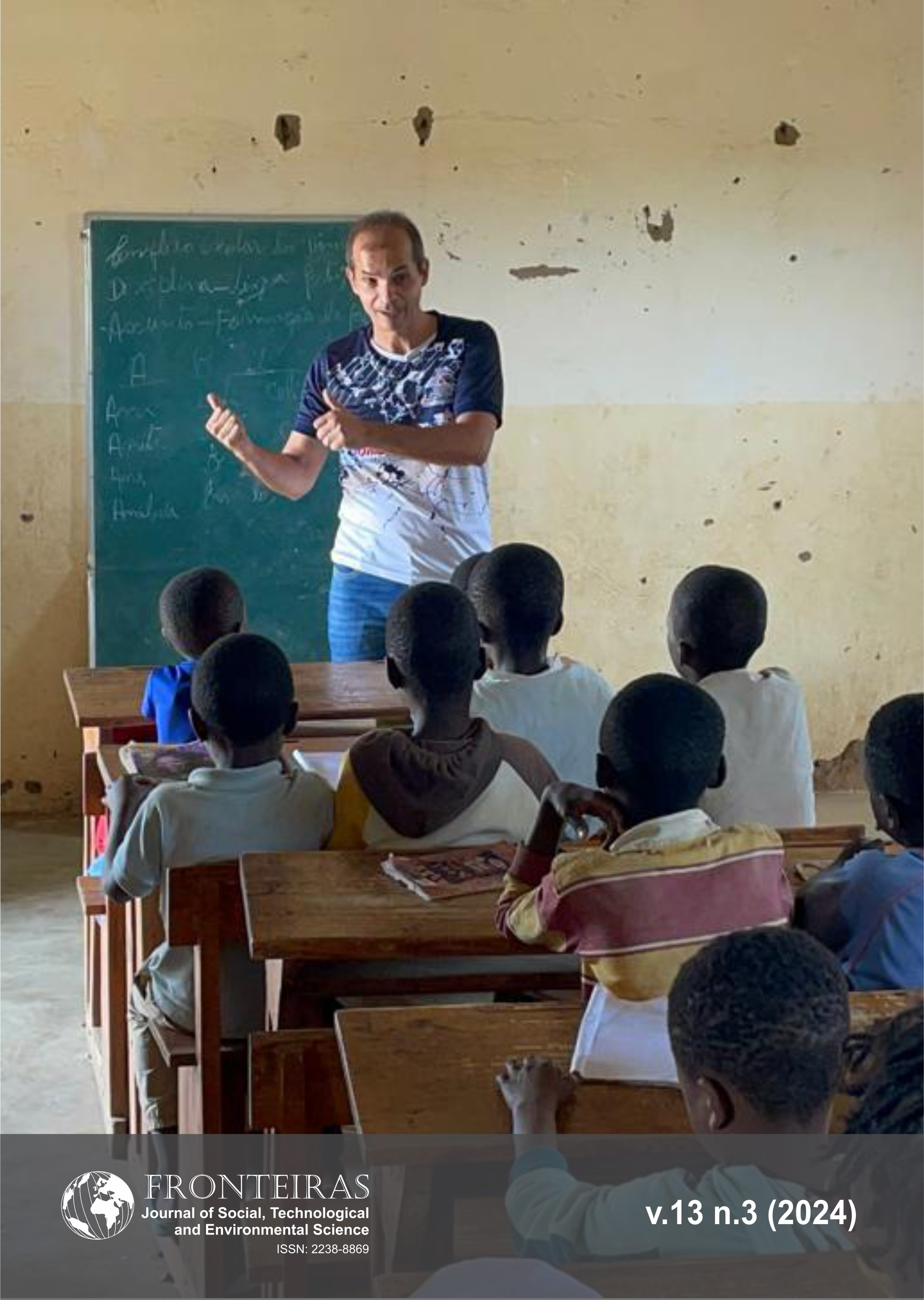“Cadernos de Navegação Geopoética”: Uma Abordagem Humanista na Compreensão do Lugar
DOI:
https://doi.org/10.21664/2238-8869.2024v13i3.p106-114Palavras-chave:
geopoética, metodologias qualitativas, geografia humanistaResumo
O presente artigo propõe uma reflexão sobre a atual relação do ser humano com a Terra, destacando como as práticas humanas na contemporaneidade têm moldado e, por vezes, comprometido a autenticidade da experiência de habitar o mundo. Com base na geopoética, teoria desenvolvida por Kenneth White (1989-2019), o estudo busca transcender a racionalidade científica tradicional, oferecendo uma compreensão mais profunda e sensível do espaço geográfico, isto é, uma abordagem humanista do lugar. O objetivo é apresentar a metodologia dos “cadernos de navegação geopoética”, propostos por Rachel Bouvet, que integra o conhecimento científico e a criação literária, valorizando a experiência humana e a criatividade como formas autênticas de habitar o mundo. A pesquisa, de natureza qualitativa e alicerçada na Geografia Humanista, utilizou revisão bibliográfica e exploração prática dos princípios da geopoética. Os resultados indicam que a metodologia proposta por Bouvet proporciona uma nova forma de interação com o ambiente, enriquecendo a compreensão do espaço geográfico e reforçando a importância da experiência e da criatividade na construção de significados. A pesquisa sugere que, ao adotar práticas que valorizam a sensibilidade e a imaginação, é possível redescobrir o sentido do gesto de habitar, em contraste com a lógica exploratória da técnica moderna. Assim, o artigo contribui para a discussão sobre a relevância de uma abordagem humanista e criativa na interação com o ambiente, promovendo uma reflexão crítica sobre a relação entre ser humano e o espaço geográfico.
Referências
Amar G 1990. Le Sens de la Terre. In Cahiers de Géopoétique 1. Paris.
Araujo, D. B. de. Geo[Grafias]Poéticas: Entre Educação e Modos Sensíveis de Habitar. PhD diss., Universidade Estadual de Londrina, 2022.
Bouvet R 2012. Como Habitar o Mundo de Maneira Geopoética? Interfaces Brasil/Canadá 12(1):9-16.
Bouvet R 2017. Habiter l’Espace Montréalaise: Dynamique des Flâneries Géopoétiques. Interfaces Brasil/Canadá 17(3):31-48.
Dardel É 2011. O Homem e a Terra. Trad. Werther Holzer. Perspectiva, São Paulo, 159 pp.
Castro LC 2018. Habitar o Mundo: A Existência como Criação na Época da Técnica. Revista Ideação 1(38):176-186.
Daveau S 1998. A 'Terra' dos Homens: Uma Palavra Carregada de Sentidos. Cadernos de Geografia 17:61-64.
Krenak A 2019. Ideias para Adiar o Fim do Mundo. Nova ed. Companhia das Letras, São Paulo, 208 pp.
Lazzarotti O 2007. Habiter, la Condition Géographique. Géographie et Cultures 63:137-138.
Roggero P 2013. Géopoétique et Anthropolitique du Territoire. In J.L. Le Moigne et al., Intelligence de la Complexité, p. 259-266.
Tuan Y-F 1980. Topofilia: Um Estudo da Percepção, Atitudes e Valores do Meio Ambiente. Trad. Lívia de Oliveira. Difel, São Paulo, 295 pp.
White K. Textos Fundadores [texto na Internet]. Instituto Internacional de Geopoética; 1989 [acessado em 17 ago. 2024]. Disponível em: https://www.institut-geopoetique.org/pt/textos-fundadores.
White K. O Grande Projeto Geopoético [texto na Internet]. Institut Géopoétique; 2019 [acessado em 17 ago. 2014]. Disponível em: https://www.institut-geopoetique.org/pt/artigos/296-o-grande-projeto-geopoetico.
Downloads
Publicado
Como Citar
Edição
Seção
Licença
Copyright (c) 2024 Danieli Barbosa de Araujo, Jeani Delgado Paschoal Moura

Este trabalho está licenciado sob uma licença Creative Commons Attribution-NonCommercial 4.0 International License.
Esta revista oferece acesso livre imediato ao seu conteúdo, seguindo o princípio de que disponibilizar gratuitamente o conhecimento científico ao público proporciona maior democratização mundial do conhecimento.
A partir da publicação realizada na revista os autores possuem copyright e direitos de publicação de seus artigos sem restrições.
A Revista Fronteiras: Journal of Social, Technological and Environmental Science segue os preceitos legais da licença Creative Commons - Atribuição-NãoComercial 4.0 Internacional.


